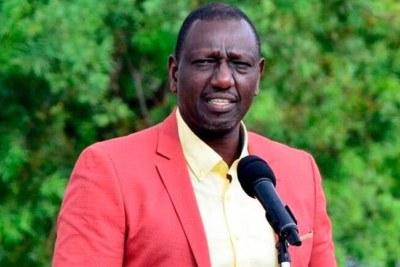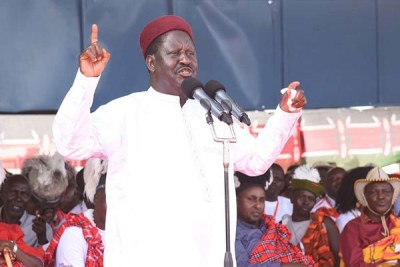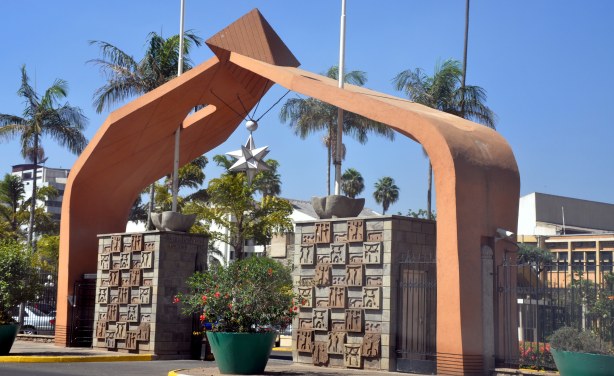-
Kenya: How to Win Elections in Kenya - Be Rich and Don't Be a Woman
African Arguments, 28 September 2021
In Kenya's previous elections, senators spent an average $319,000 in getting elected. Read more »
-
Kenya: Be Your Number One Fan, Karua Tells 2022 Female Aspirants
Nation, 26 August 2021
Women rights organisations have pledged to support their own to successfully vie for elective seats in the 2022 General Election. Read more »
-
Kenya: Lessons Kenya Can Learn From Zambia's Election
Nation, 18 August 2021
Zambia's main opponents in last week's General Election chose female running mates, a precedential move in the pace to narrowing the gender gap in the continent's top leadership. Read more »
-
Kenya: Where's the Female Presidential Candidate?
Nation, 13 August 2021
Eleven months, 21 days! That's the exact time remaining from today to the 2022 General Election, at least according to the Constitution. Read more »
-
Kenya: 2022 Election - Prepare the Ground Early, Women Urged
Nation, 12 August 2021
Women seeking to successfully vie for elective seats have been urged to prepare the ground early. Read more »
How to Win Elections in Kenya - Be Rich and Don't Be a Woman
In Kenya, campaign financing laws and regulations are rarely enforced. Some new rules were recently proposed, but politicians are keen to avoid discussing electoral expenditure. They know that winning elections is more about spending money - and then making money - than worrying about constituents' wellbeing or coming up with a compelling political ideology.
Candidates who were successfully elected to the National Assembly in the 2017 general elections spent an average U.S.$166,000 during their campaigns. Those elected to the Senate expended an average U.S.$319,000. In many constituencies - especially those in which one party dominates - most of the expenditure occurs during party primaries. Senators, for instance, spent an average U.S.$175,000 during these internal contests to win their party's nomination, compared to U.S.$148,000 in the subsequent national election.
Research also revealed a significant gender disparity. Far fewer women make it to the ballot or win seats but they spend significantly more. In trying to win seats in the National Assembly, for instance, women spent an average of U.S.$240,000) compared to men's average of U.S.$155,000, write Karuti Kanyinga and Tom Mboya for African Arguments.
InFocus
-
Deputy President William Ruto has slammed the door on any possible coalition with smaller political parties, ahead of the 2022 general election. He has warned those opposing his ... Read more »
-
Registrar of Political Parties Ann Nderitu has allowed the dissolution of the National Super Alliance (Nasa), giving way for the formation of new coalitions as the race to succeed ... Read more »
-
Cabinet secretaries - some of whom had shied away from directly confronting the second-in-command - have recently come out against Deputy President William Ruto. Without ... Read more »
-
The Court of Appeal has ruled that a plan by President Uhuru Kenyatta and opposition leader Raila Odinga to change the Constitution was unlawful. Justice Gatembu Kairu said the ... Read more »
-
Orange Democratic Movement (ODM) leader Raila Odinga faces an uphill task in his 2022 State House quest following the collapse of the Handshake-backed Building Bridges Initiative ... Read more »







